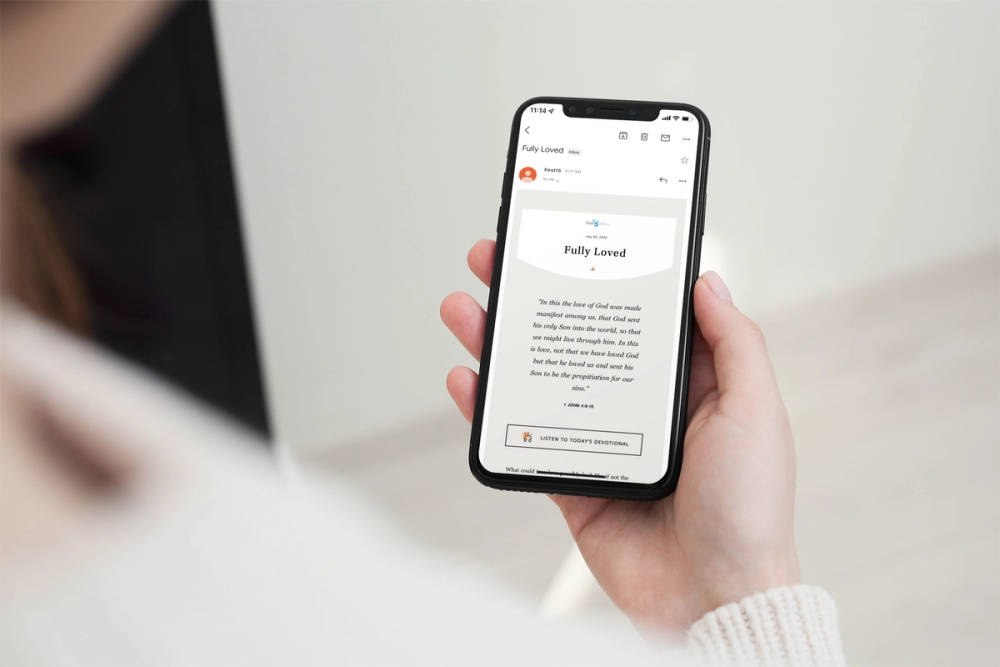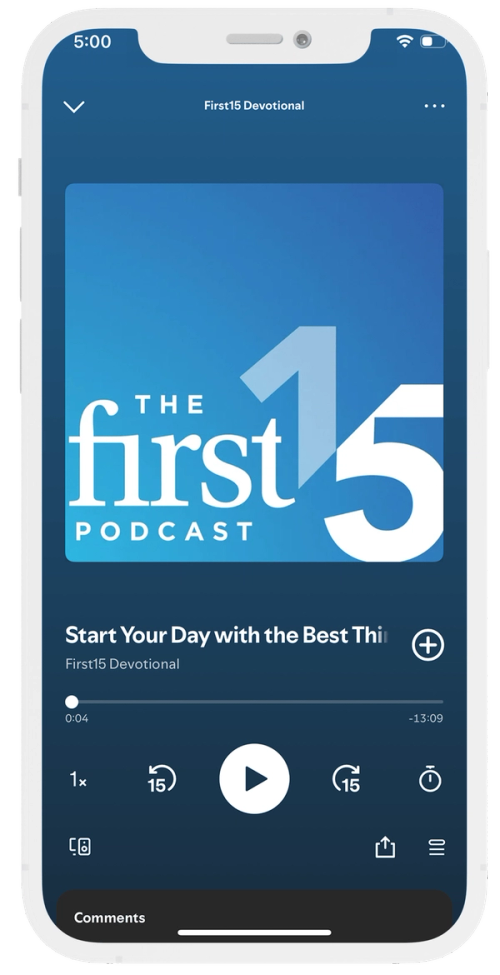Knocking On God’s Door At Midnight
Some people view God as stingy or irritable, but the truth is that God is generous and gracious.
Some people view God as stingy or irritable, but the truth is that God is generous and gracious.
Luke 11:13 ESV
As we continue our weeklong focus on prayer, today we’ll discuss one of the most misunderstood parables in the Bible. Some people view God as stingy or irritable, but the truth is that God is generous and gracious. Let’s explore the loving heart of our Father as we dive into today’s passage.
In Luke 11:5-13, Jesus told a story about a man who knocked on his neighbor’s door at midnight and said, “Friend, lend me three loaves, for a friend of mine has arrived on a journey, and I have nothing to set before him.” The man inside the house replied, “Do not bother me; the door is now shut, and my children are with me in bed. I cannot get up and give you anything.”
However, Jesus continued, “I tell you, though he will not get up and give him anything because he is his friend, yet because of his impudence he will rise and give him whatever he needs.” Jesus followed this story by telling us to ask, seek, and knock, with the promise that God will answer us.
He illustrated: If your son asks for a fish, would you give him a serpent? If he asked for an egg, would you give him a scorpion? He concluded: “If you then, who are evil, know how to give good gifts to your children, how much more will the heavenly Father give the Holy Spirit to those who ask him!”.
Jesus’ meaning seems clear: if we pray long enough and passionately enough, God will give us what we ask because of our “impudence” (the original Greek word here means “shamelessness” or “lack of proper restraint”). It seems like the implication is that God doesn’t want to answer. Remember, the man inside the house said, “Do not bother me; the door is now shut.” The story seems to suggest that if we bother him long enough and loudly enough, he will answer our prayers.
In fact, the story teaches just the opposite.
Typical homes in Jesus’ culture had only one room. The front two-thirds was a dirt floor where the animals were kept at night; the back one-third was an elevated platform where the family slept together. The door was open all day since hospitality was an important value and there was little to steal. It was only “shut” when the family went to sleep.
In a day without preservatives, people made bread each day for that day’s needs (hence Jesus’ reference to “our daily bread” in the Model Prayer). But this neighbor in the parable didn’t do so. Then, when he needed bread for a visitor, he banged on a door that was shut, waking the family and animals inside. The man didn’t want to get up to help, but the neighbor’s persistence forced his hand until he did.
Here’s the key: Jesus is using a rabbinic teaching technique known as the qal wahomer, meaning “from the light to the heavy.” His point is that if a man would get up at midnight to give his neighbor bread, how much more would God rise to answer our prayers and meet our needs.
Because of that, when we pray, we should expect our Father to hear us and give us what is best. Not because we are worthy of his grace but because “God is love,” as the Scriptures tell us in 1 John 4:8. He always and only wants what is best for his children. His will is always “good and acceptable and perfect,” as we read in Romans 12:2.
We should not assume that we know the best answer to our prayers. But we should expect that our Father does and trust him to do what results in his greatest glory and our greatest good.
today’s devotional is written by Jim Denison
1. Meditate on Jesus’ story. Imagine yourself inside the house as the neighbor bangs on your door. Feel the man’s frustration, then contrast his anger with our Father’s grace.
“From his fullness we have all received, grace upon grace” (John 1:16).
2. Remember the last prayer your Father answered. Was it a sin he forgave? A need he met? A blessing he gave? Reflect on the grace in which he heard you and answered you.
“Before they call I will answer; while they are yet speaking I will hear” (Isaiah 65:24).
3. Name your greatest need today and bring it to your Father by faith. Continue to pray until he answers with his best. Remember his Son’s sacrifice for you and trust his transforming love.
“The Word became flesh and dwelt among us, and we have seen his glory, glory as of the only Son from the Father, full of grace and truth” (John 1:14).

Alfred Lord Tennyson wrote, “More things are wrought by prayer than this world dreams of.” Paul would have agreed. He not only prayed for his readers; he regularly asked them to pray for him as well (cf. Colossians 4:3; Philippians 1:19; 2 Thessalonians 3:1–5; Romans 15:30–32; 2 Corinthians 1:11; 1 Thessalonians 5:25).
Who is praying regularly for you? For whom are you interceding regularly? James warned us, “You do not have, because you do not ask”.
Expect your Father to hear you and to answer you. Then give the gift of intercession to someone who needs it most today.
Extended reading: Luke 18:1–8 & Studies on Prayer by Janet Denison
Who is praying regularly for you? For whom are you interceding regularly? James warned us, “You do not have, because you do not ask” (4:2). Expect your Father to hear you and to answer you. Then give the gift of intercession to someone who needs it most today.

